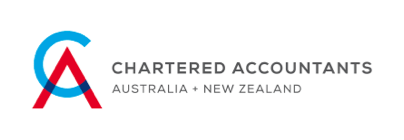Financial audits are essential for schools to meet their compliance requirements. They are also an opportunity to build trust and confidence among the school community and its stakeholders. This can help boost support and funding opportunities, while ensuring schools remain focused on their core educational objectives.
Allen Audit & Advisory audit manager Katrina McPhee breaks down the complexities of school audits and how to ensure yours is top of the class, year after year.
What regulatory requirements do schools need to be aware of?
Schools, including public, independent and faith-based, are generally required to conduct a financial audit annually, with some larger institutions also requiring an interim half-year check-in. The key regulatory or governing body depends on the school and can include:
- Australian Charities and Not-for-profits Commission (ACNC)
- Australian Securities & Investments Commission (ASIC) / Corporations Act
Katrina says regular changes to legislation mean it’s important for schools to stay up to date on their reporting requirements. “The websites for the various reporting bodies contain the latest information, templates and guidance sheets schools need to be across,” she says.
“Engaging with your financial audit team early ensures you’ll be kept informed of any new or changing requirements. The most common audit period for schools is 1 January through to 31 December, so we recommend checking in throughout the year in preparation for the audit to commence early in the New Year.”
What unique complexities impact school audits?
The nature of schools’ operations and funding structures means there are numerous complexities in auditing their financial statements, including:
- Multiple revenue streams
“Each revenue stream may require different accounting treatments and verification procedures,” explains Katrina. “With funds often coming from diverse sources including government grants, tuition fees, donations, fundraising activities and investment income, ensuring each is treated correctly is extremely important to producing accurate and compliant records.”
- Restricted funds, such as donations or grants
Donor-imposed restrictions add an additional layer of complexity. “Schools frequently receive donations or grants with restrictions, for example, government grants that have specific compliance requirements,” says Katrina.
“Auditors need to ensure funds are properly tracked, used for their intended purposes and reported correctly. We audit all funding agreements and assist in preparing the acquittal for the required governing body.”
- Expense structures
Expense categories may include teaching materials, student services and facility maintenance, among others. Auditors need to understand the specific cost centres so they can verify the appropriate allocation of these unique school expenses.
- Asset management
“Schools often have significant fixed assets including buildings, equipment and technology,” advises Katrina. “Auditors need to review depreciation schedules, asset valuations and capital expenditure policies during the process to account for these assets.”
- Regulatory compliance
The financial audit must consider the various education sector regulations and unique reporting requirements schools are required to meet to ensure compliance.
- Related party transactions
Schools may have complex relationships with foundations, alumni associations, or other affiliated entities that require careful examination.
How should schools prepare for their audit?
Katrina says the key to success is proactive preparation. “You should start preparing for the audit well in advance,” she says. “This includes organising your financial records, ensuring transactions are properly documented and reconciling accounts regularly throughout the year.
“It is recommended you establish clear and constant communication with the auditors, particularly in the lead up. Agree on the audit timeline and ensure all relevant school staff — including the school treasurer, business manager, directors, committee members and any other personnel who assists in the school’s day-today financial activity — are available to the auditors as needed.”
What can schools do throughout the year to ensure a smooth audit?
Maintaining accurate documentation and record-keeping is a must. Katrina advises all financial records, including receipts, invoices and bank statements, should be kept up to date and reflect the school’s financial activities. “This involves performing regular reconciliations of financial information to ensure consistency with the general ledger,” she says.
“You’ll also need to correctly file all supporting documents for ease of reference come audit time and stay informed of any changes to regulatory requirements to ensure you continue to comply with the latest standards.
“If you follow these steps throughout the year, you’ll experience a smoother and more efficient financial audit process at year-end.”
What happens after the audit?
The audit process typically takes about four weeks to complete from start to finish, depending on the size of the school. Once finalised, schools then need to submit their financial statements and audit report to the appropriate governing body. They’ll also be required to present the report at the Annual General Meeting (AGM) to key school stakeholders.
How does the audit benefit the school community?
Audits are necessary to ensure compliance with education regulations and accurate reporting of a school’s financial status. However, Katrina says the benefits extend far beyond this.
“A strong financial audit process cultivates trust and confidence among parents, governing bodies and potential donors, which can lead to increased community support and funding,” she says.
“Through the audit, schools receive valuable feedback on their financial management and operational procedures to help enhance their processes. We also generally provide a letter detailing areas of risk and potential improvement to assist with tightening procedures.”
How can Allen Audit & Advisory help with the school audit process?
Schools come in a range of sizes, with varying purposes and regulatory requirements. Allen Audit & Advisory has the knowledge and capability to tailor its audit approach to the unique circumstances and driver of each educational facility. Katrina says the team has extensive experience working with schools across the board on their financial audits.
“Our aim is for schools to gain knowledge and understanding of their financial position, while identifying areas for continuous improvement,” she says. “We want to ensure year-upon-year, the schools we work with receive an A-grade audit report and the education to make the next one just as successful.”
If you’d like to learn more about Allen Audit & Advisory’s school audit and advisory services, please call the team on 07 5503 1709 or email info@allenaudit.com.au.








